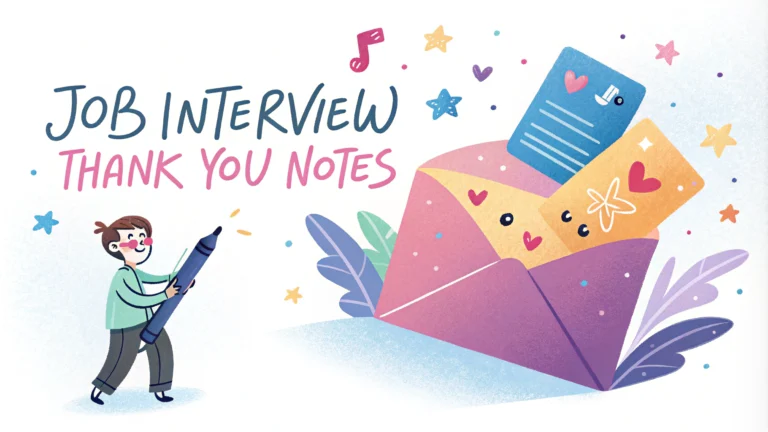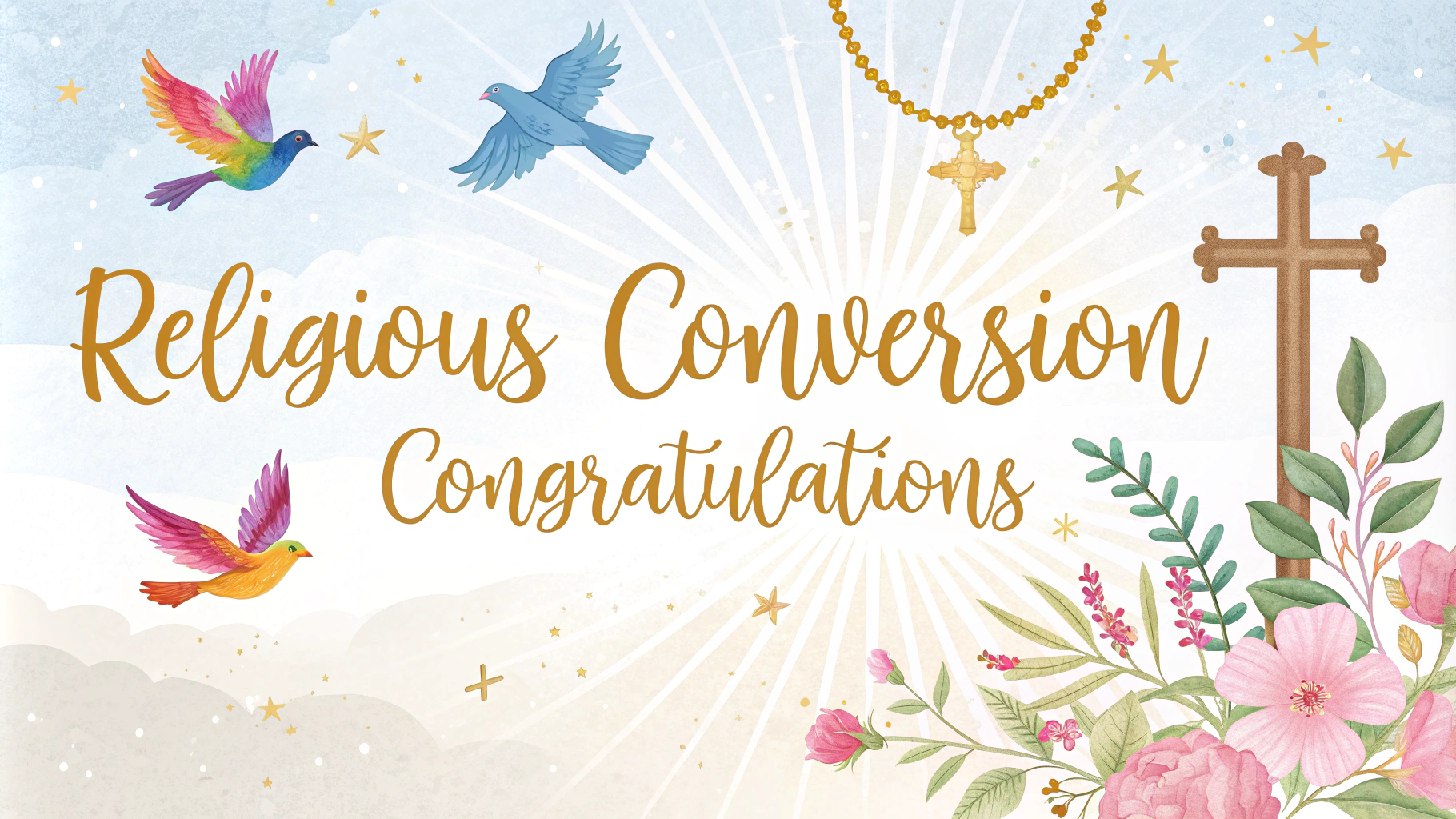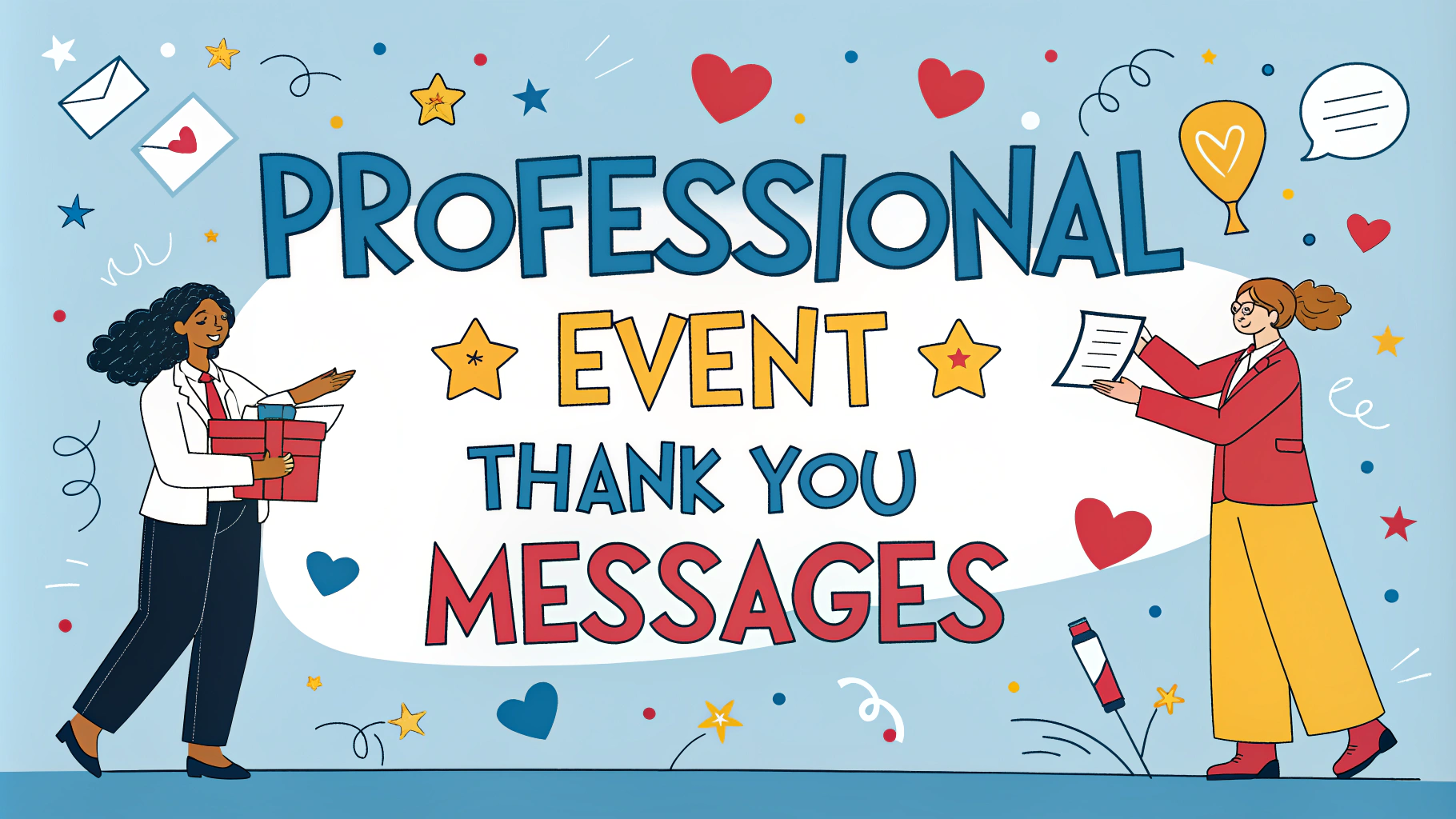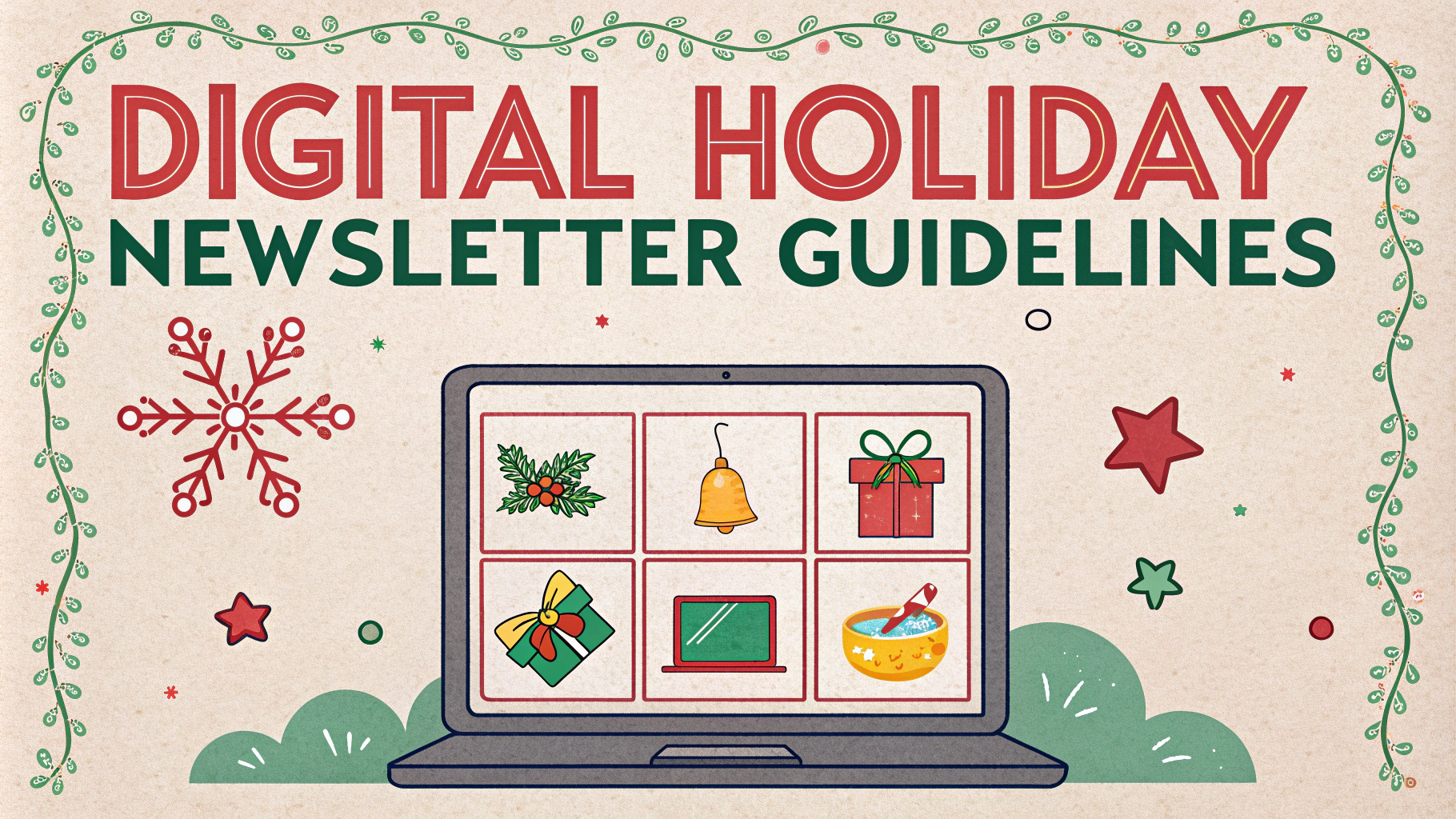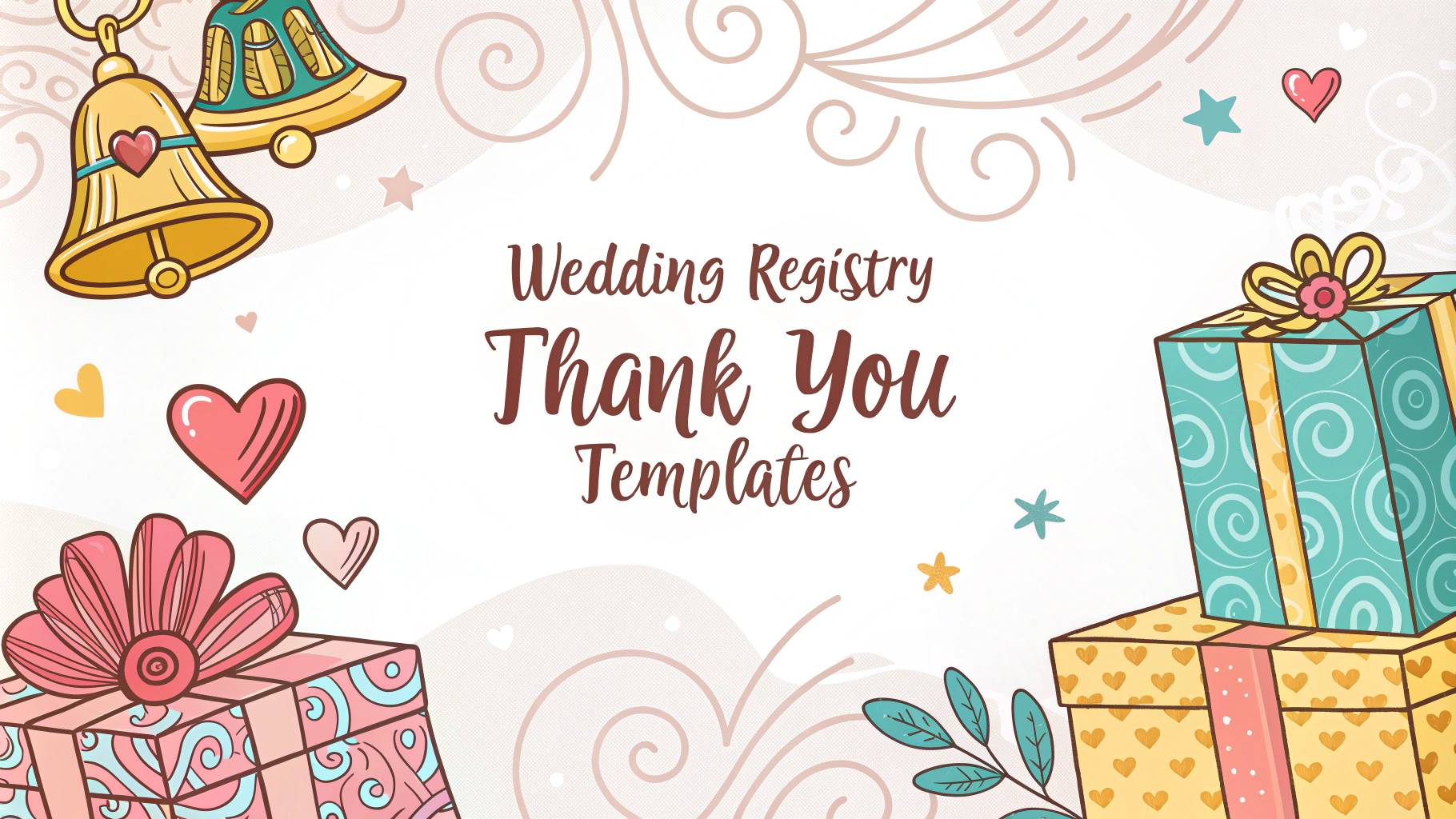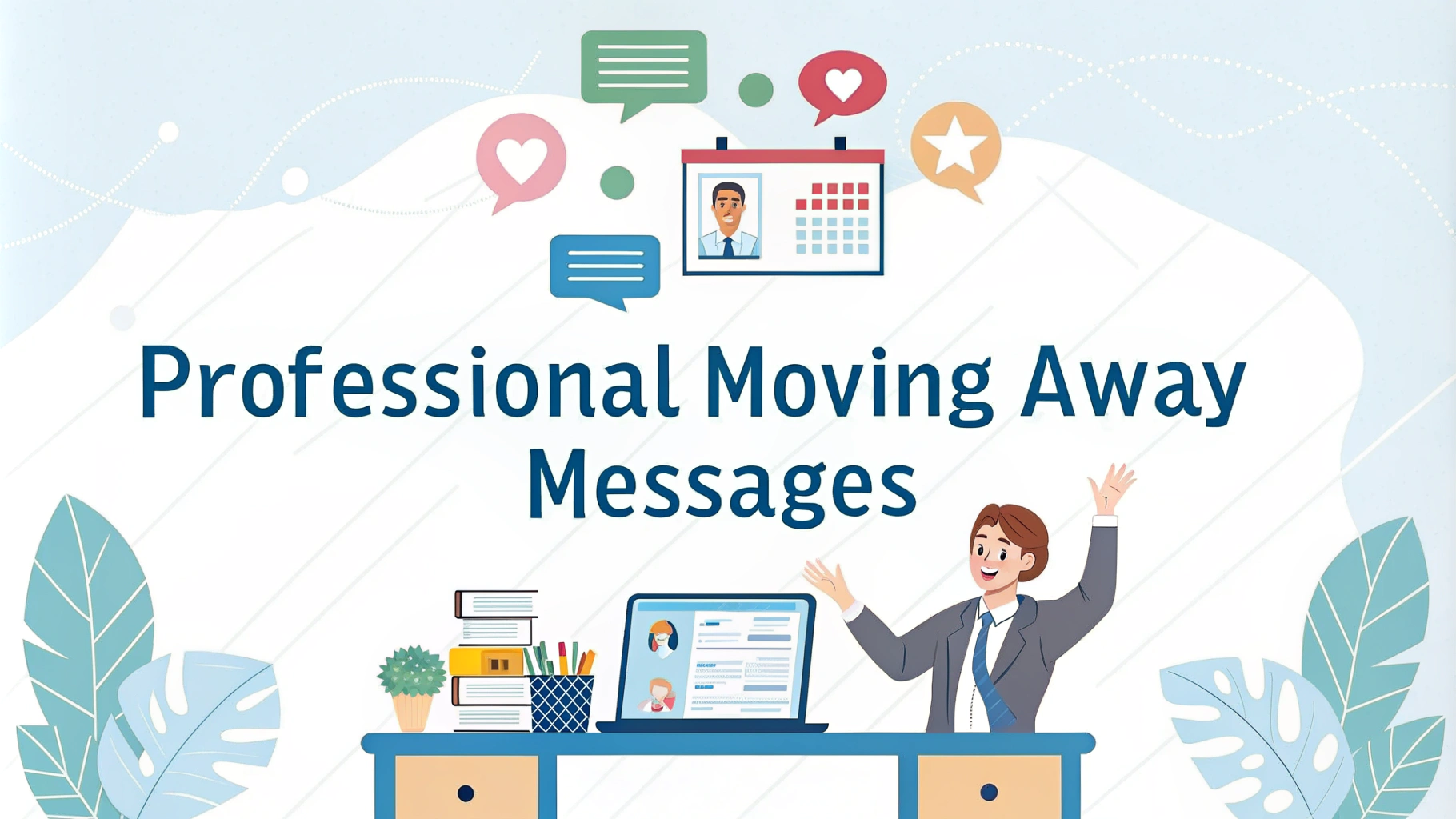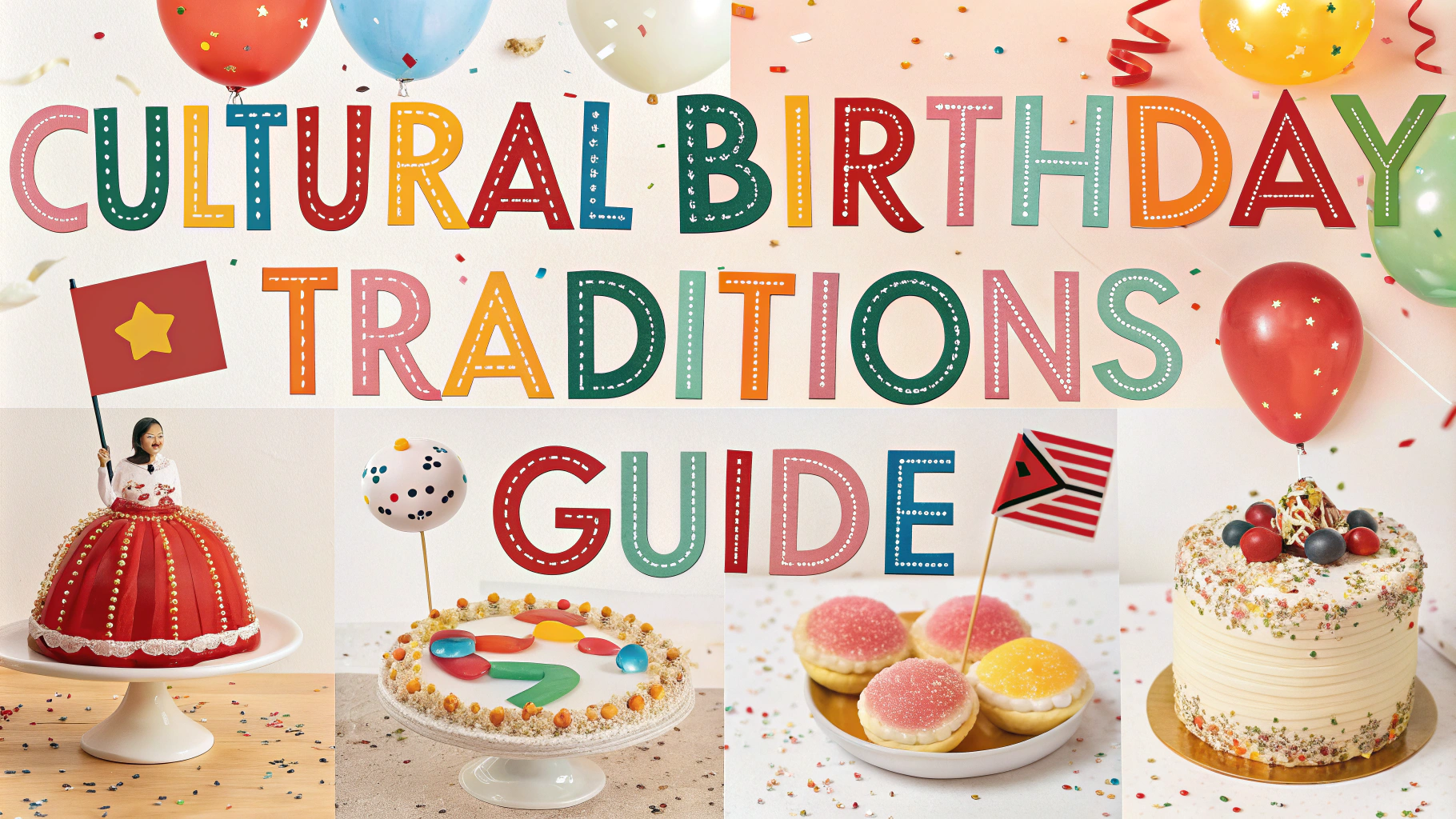Writing a thoughtful thank you note after a job interview can help you stand out from other candidates and reinforce your interest in the position.
When to Send Your Thank You Note
Send your thank you note within 24 hours after your interview to keep yourself fresh in the interviewer’s mind.
Email vs Handwritten Notes
- Email: Quick, professional, and most common in modern workplaces
- Handwritten: More personal touch, better for traditional industries
Essential Elements to Include
- Express genuine appreciation for the interviewer’s time
- Reference specific discussion points from the interview
- Reaffirm your interest in the position
- Address any concerns that came up during the interview
- Include your contact information
Sample Thank You Email Template
Subject Line: Thank You – [Position] Interview
Dear [Interviewer’s Name],
Thank you for meeting with me [yesterday/today] to discuss the [Position] role at [Company Name].
I was particularly excited to learn about [specific project or company initiative discussed].
After our conversation, I am confident that my [relevant skill] would be an asset to your team.
Please don’t hesitate to contact me if you need any additional information.
Best regards,
[Your Name]
[Your Phone Number]
Common Mistakes to Avoid
- Waiting too long to send the note
- Using generic templates without personalization
- Making spelling or grammar errors
- Being too informal or casual
- Writing lengthy paragraphs
Following Up After the Thank You Note
If you haven’t heard back within a week after sending your thank you note, send a brief follow-up email asking about the next steps in the hiring process.
Special Situations
- Panel Interviews: Send individual notes to each interviewer with unique content
- Video Interviews: Thank the interviewer and acknowledge any technical challenges professionally
- Multiple Round Interviews: Send a fresh thank you note after each round
Quick Tips for Success
- Proofread multiple times before sending
- Keep the tone professional but warm
- Include a specific detail from your conversation to show attentiveness
- Save the interviewer’s business card or write down their contact information accurately
- Set a reminder to follow up if you don’t receive a response
Remember that a well-crafted thank you note can serve as your final pitch for the position and leave a lasting positive impression.
Additional Best Practices
- Customize each note for different interviewers
- Mention any forgotten points from the interview
- Keep the length between 150-200 words
- Use a professional email address
- Double-check the spelling of names and titles
Impact on Hiring Decisions
Studies show that 80% of hiring managers consider thank you notes in their evaluation process. A well-written note can be the deciding factor between equally qualified candidates.
Why Thank You Notes Matter
- Demonstrates professional courtesy
- Shows attention to detail
- Reinforces your communication skills
- Provides opportunity for additional engagement
Digital Etiquette Tips
- Use a clear, concise subject line
- Avoid fancy fonts or colored text
- Don’t include attachments unless requested
- Test email formatting on different devices
Conclusion
A strategic thank you note is more than just good manners—it’s a powerful tool in your job search arsenal. By following these guidelines and paying attention to detail, you can create a meaningful follow-up that enhances your candidacy and demonstrates your professionalism. Remember that this final touchpoint can significantly impact your chances of landing the position.
Key Takeaways
- Send within 24 hours
- Personalize content for each interviewer
- Reference specific conversation points
- Maintain professionalism throughout
- Follow up appropriately if needed
FAQs
- When should I send a thank you note after a job interview?
Send your thank you note within 24 hours after your interview. This demonstrates promptness and keeps you fresh in the interviewer’s mind. - Should I send an email or handwritten thank you note?
An email is the preferred method in most modern workplaces, especially when a hiring decision is expected quickly. However, for traditional industries, you can follow up an email with a handwritten note. - What key elements should I include in my interview thank you note?
Include a genuine expression of appreciation, reference specific interview discussions, reiterate your interest in the position, highlight key qualifications, and mention any important points you forgot during the interview. - Should I send individual thank you notes if I met with multiple interviewers?
Yes, send personalized thank you notes to each interviewer, customizing the content to reflect your specific conversation with each person. - What if I don’t have the interviewer’s email address?
Contact the HR representative or recruiting coordinator who arranged your interview and request the interviewer’s email address, explaining that you’d like to send a thank you note. - How long should a thank you note be?
Keep your thank you note concise and professional, typically 3-4 short paragraphs or around 150-200 words. - Is it appropriate to send a thank you note after a phone or virtual interview?
Yes, send a thank you note after any type of interview, whether it’s in-person, phone, or virtual. The same rules of timing and content apply. - Can a thank you note make up for a poor interview performance?
While a thank you note can’t completely salvage a poor interview, it can provide an opportunity to clarify misunderstandings, address overlooked points, and demonstrate your communication skills. - Should I mention salary or benefits in my thank you note?
Generally avoid discussing salary or benefits in your thank you note unless specifically requested during the interview to provide additional information on these topics. - What are common mistakes to avoid in interview thank you notes?
Avoid spelling and grammar errors, generic messages, overly casual language, being too pushy about the position, and sending the note too late or not at all.
